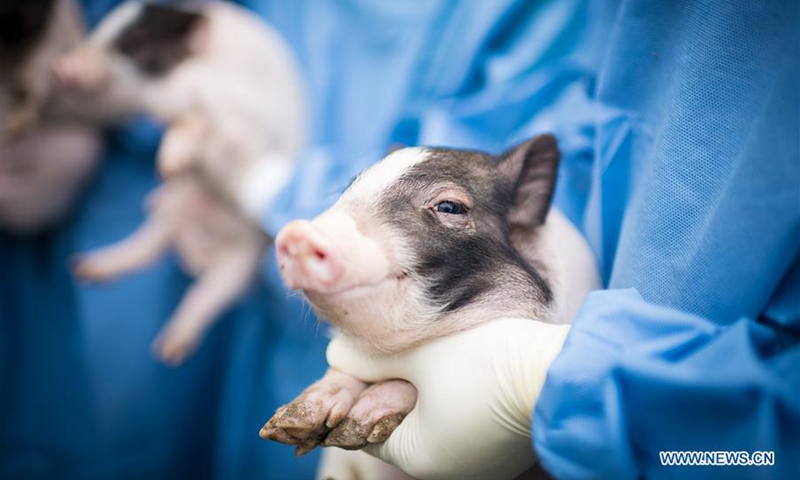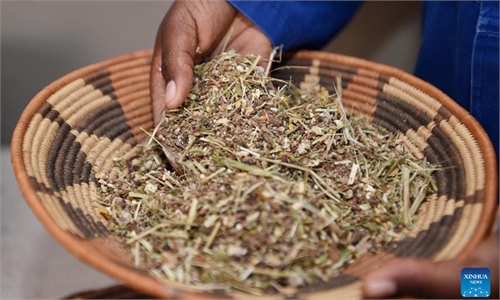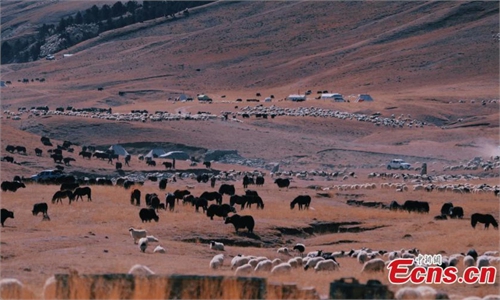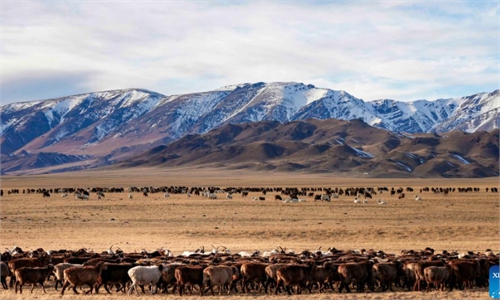
In this photo handed out by the Chinese Academy of Sciences, a pig model for Huntington's disease is pictured at a laboratory in Guangzhou, south China's Guangdong Province, March 28, 2018. A Chinese team of scientists has established a pig model of Huntington's disease (HD), an inherited neurodegenerative disease, using genetic engineering technology. In a study published in "Cell" on Thursday, researchers anticipated that the pigs could be a practical way to test treatments for HD, which is caused by a gene encoding a toxic protein that causes brain cells to die. (Photo: Xinhua)
A Chinese agricultural tycoon has stressed the urgency of making further advances in livestock breeding by tapping digital technologies and biotechnologies and scaling up the agricultural value chain.
Liu Yonghao, a member of the 14th National Committee of the Chinese People's Political Consultative Conference and chairman of New Hope Group, stressed in two of his five proposals, shared with the Global Times, the need to tackle bottlenecks by pooling resources to advance technologies for livestock breeding and production of animal feed.
Dubbed the "king of animal feed," Liu said in an interview with the China Economic Weekly published on Wednesday that his company has successfully created a proprietary duck breed and ended China's reliance on imported meat ducks and breeding ducks.
Liu said that his company is working on a "pig chip," and it has developed software to manage the breeding process for pigs.
"Pig chip" is a metaphor for pig breeding. Chinese agricultural experts have adeptly described seeds as the chip of agriculture.
Recently New Hope Group made a genome discovery linked with pigs' economic traits, Liu said.
Better breeds of livestock mean higher production and yields, and have the potential to make China's agriculture industry less labor-demanding and greener, helping to improve the industry's overall capacity.
According to Liu, China raises more pigs, chickens and ducks than any country in the world but still faces a big gap between the quality of the breeds on Chinese farms and the best ones in the world.
In one proposal, Liu urged the country to forge a batch of agricultural companies with core technologies, market influence and international discourse power by exploring effective ways to revitalize agriculture and pooling resources to resolve weak points in livestock breeding.
In another, Liu identified breeding genetic engineering and feed fermentation synthetic biotechnology as areas facing bottlenecks.
In 2021, some 51.7 percent of China's grain was consumed as animal feed. Some experts said the nation's food security is largely an issue of animal feed security.
On February 13, China published a key policy document calling for consolidating support of agricultural science, technology and equipment.




